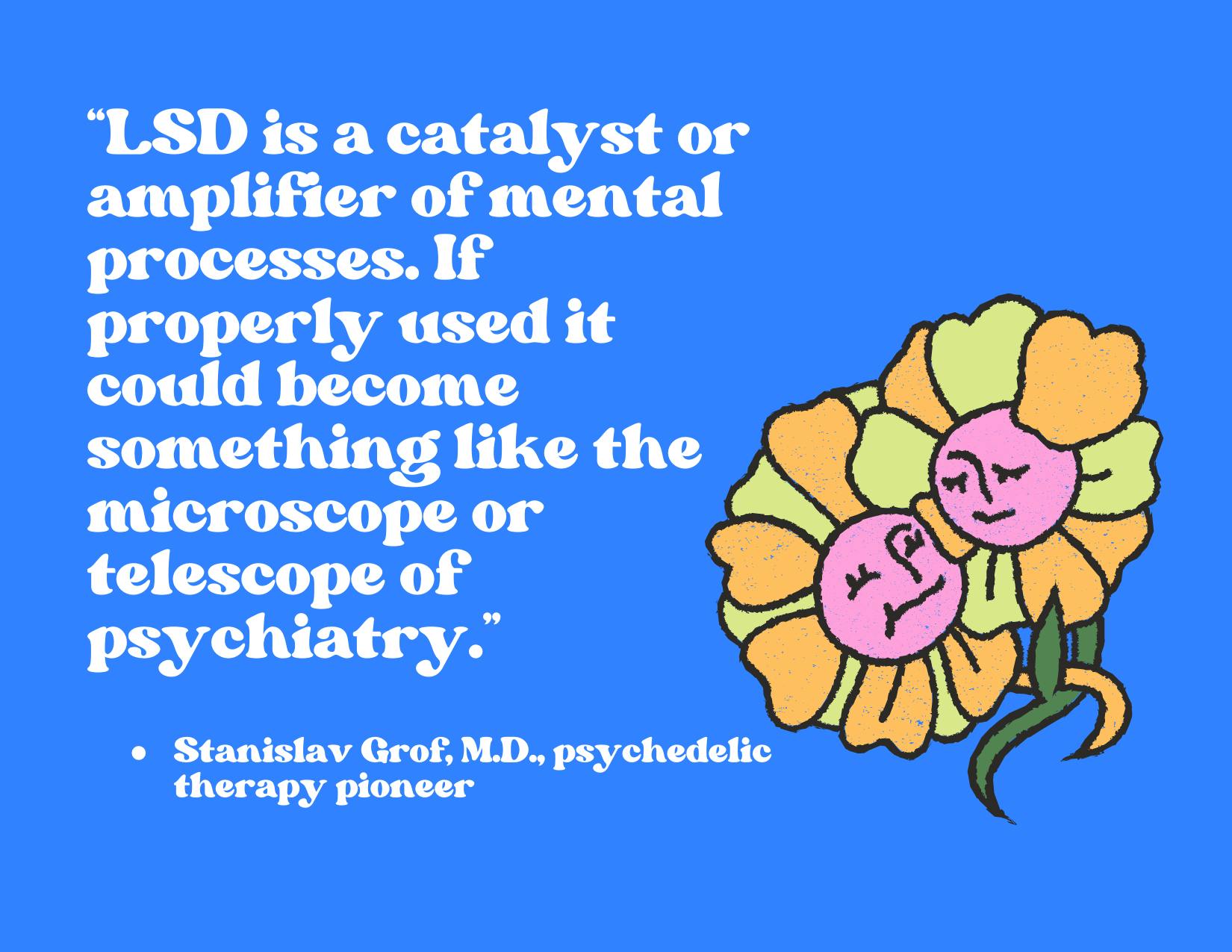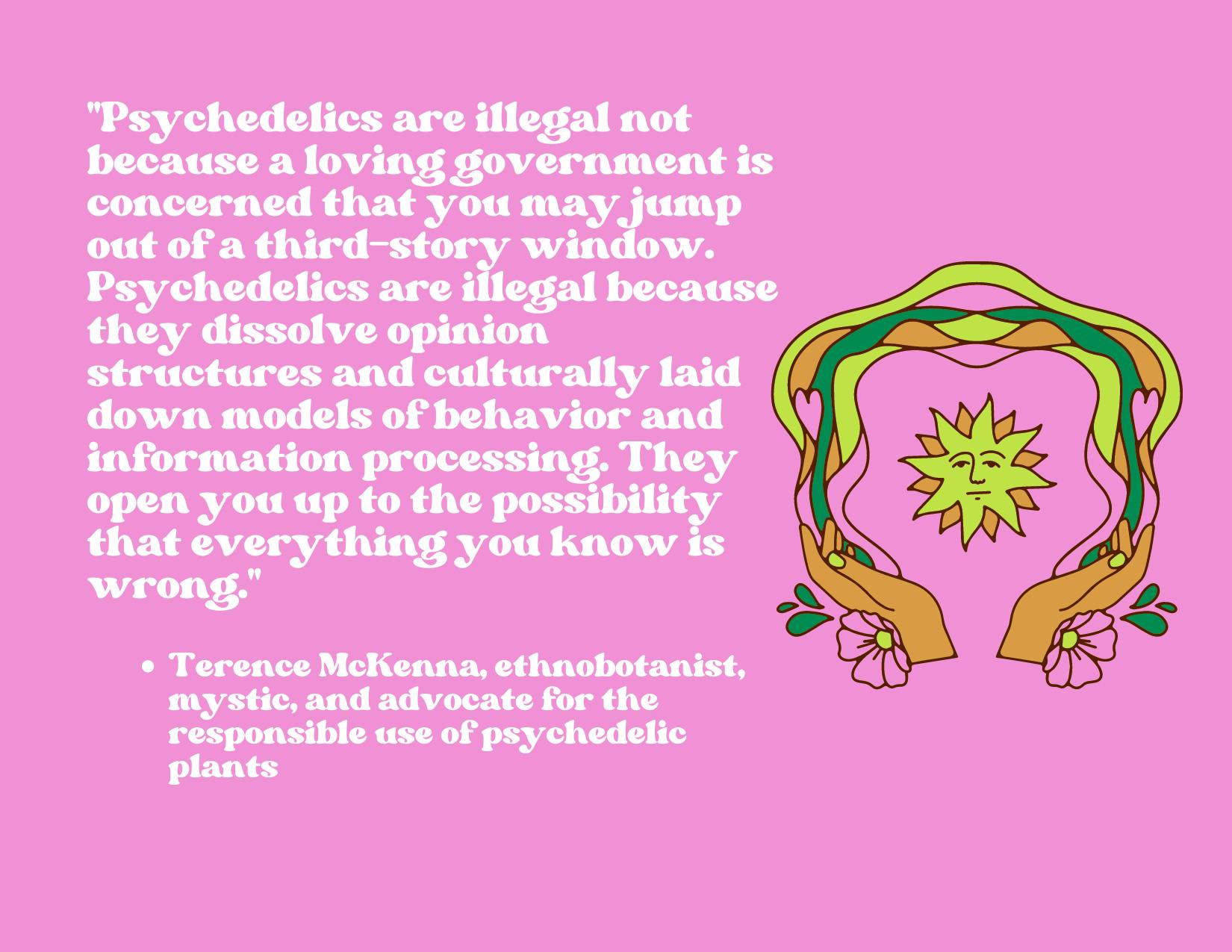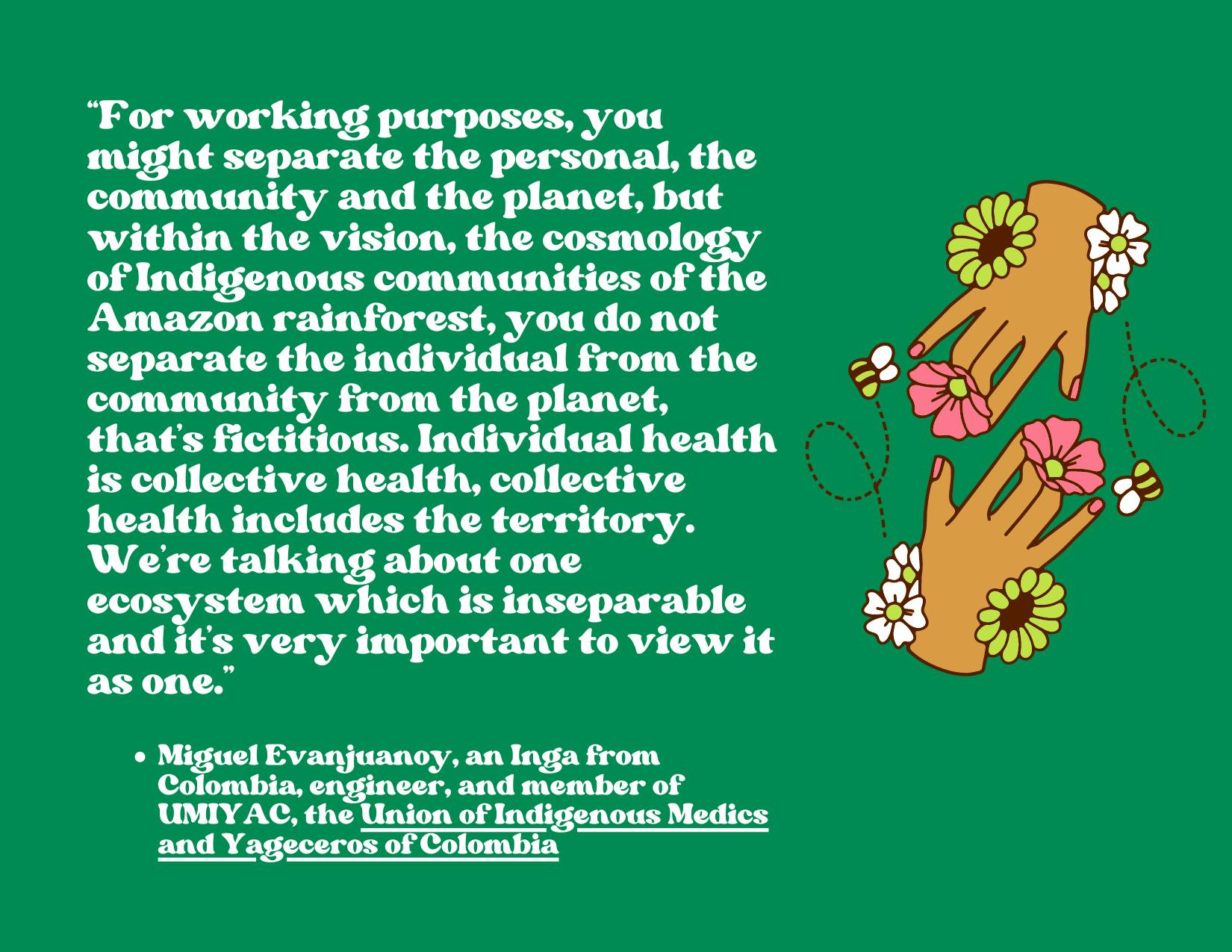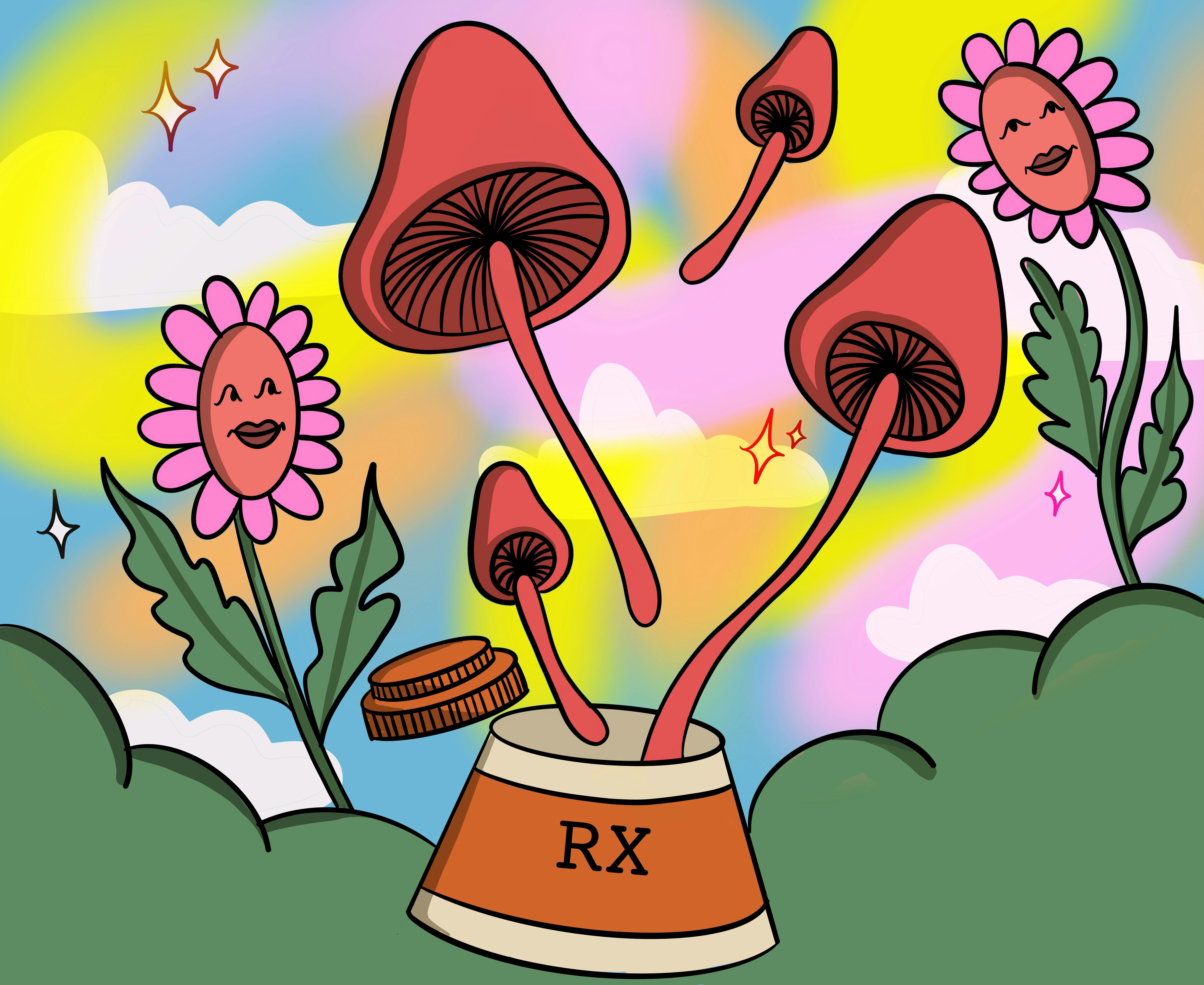Legalized Psychedelics and Collective Well-Being
How individual entheogenic therapy could alter society’s perspective on mental health

As the American mental health crisis reaches epidemic status, the California Senate has embraced a once taboo solution. The May 2023 passage of California Senate Bill (SB 58) marks a pointed shift in the state’s approach to psychedelic drugs, legalizing their possession and facilitated use to treat depression, anxiety, PTSD, and end-of-life care. But how will this new therapy for the individual affect an unwell collective?
Mental health professionals have cited a growing need for holistic approaches to mental health as we exit a harrowing few years of Covid, job insecurity, political turmoil, and climate crisis. It’s a decision that could change the way we process grief, cope with anxiety, and mediate mental health as a whole.
Access to Western medicine is still a struggle for many and the U.S. healthcare system continues to fail 8 out 10 Americans. Affordability remains a major factor, especially for mental health services. The “wellness” boom appears to be a trend born out of distrust of the existing healthcare system, yet Americans still find themselves in the midst of a mental health emergency.
Whether you take your health advice from your doctor or less conventional means, it all hinges on the contingency that poor health and depression is a “you” problem. Are you drinking enough water? Are you exercising? Are you meditating? Are you on the right meds? Current methods continue to ignore the common denominator. There may be no amount of self-help, devotion to self-care, or perfect cocktail of meds to heal what is truly making us sick: society, itself.

This idea isn’t a conspiracy theory. In 1949 Albert Einstein warned, “the economic anarchy of capitalist society as it exists today is, in my opinion, the real source of evil,” and called it “the essence of the crisis in our time.” A peer-reviewed scientific journal on depression postulates that consumerism is “a likely cause why ‘selfish capitalist’ countries like the UK and the US now have mental illness rates above 20%, twice as high as in 1980, and also twice as high as those observed today in less selfish economies…” Yet the nature of an individualistic society deems these mental health issues a weakness on the part of the sufferer.
Psychedelics, used therapeutically for millennia before Western industrialization, may have the unintended side effect of awakening patients to the root of the problem: the futility of capitalism and the exploitation of labor, just to name a few. Trend reports are already citing a rise in this ideology noting, “we could possibly be nearing the peak of capitalism once the youngsters of today will start making their mark on the world.” Legalized use of psychedelics may only prove to bolster this awakening.

In the meantime, these newly legalized substances–psilocybin, psilocyn, DMT, ibogaine, and mescaline–are a godsend for those dealing with terminal illness, debilitating depression, and PTSD. Entheogenic therapies remain unlike any other, in that it is not the medicine that heals, but the alteration of perception they elicit. Michael Pollan, author of the seminal How to Change Your Mind, said in an interview, “...it is the nature of the experience you have that’s curing you, not anything pharmacological.” What that means for the future of pharmaceuticals has yet to be seen.
Studies show that entheogenic therapies are safe, well-tolerated, and have beneficial effects as an antidepressant, emotional regulator, anxiolytic (anti-anxiety), and anti-addictive agent, and these effects are reported to be fast-acting and long-lasting. We know this now thanks to researchers pushing through obstacles of societal taboo and lack of funding for the last six decades. Today, every major research institution is studying the myriad ways psychedelic therapy can transcend modern medical healing.
Even the realm of philosophy has entered the chat, finally dismissing centuries of perceived illegitimacy. Perception, as it stands, is the crux of the entire conversation. And while Californians who may never have tripped pre-legalization begin turning on, tuning in, and dropping out, the ontology of hallucinogens will become all the more necessary. For anyone who has experience with psychedelics knows, the “everything” of it all, guided or not, can be as confusing as it is eye-opening without a framework to contextualize it. Fortunately, the passage of SB 58 allows for a large-scale observational study and hopefully, in turn, a foundation for entheogenic therapies to come.
It is a strange twist of fate that the natural world we have been slowly destroying is giving us yet another chance at a worthwhile survival. Dr. Andrew Weil stated in his 1972 exploration of psychedelics, The Natural Mind, "Drugs cannot give us the experiences that they seem to promise because they do not create anything new in the mind. They only allow us access to parts of the mind that we ordinarily do not use." The healing we seek has been here all along, within and without us.
